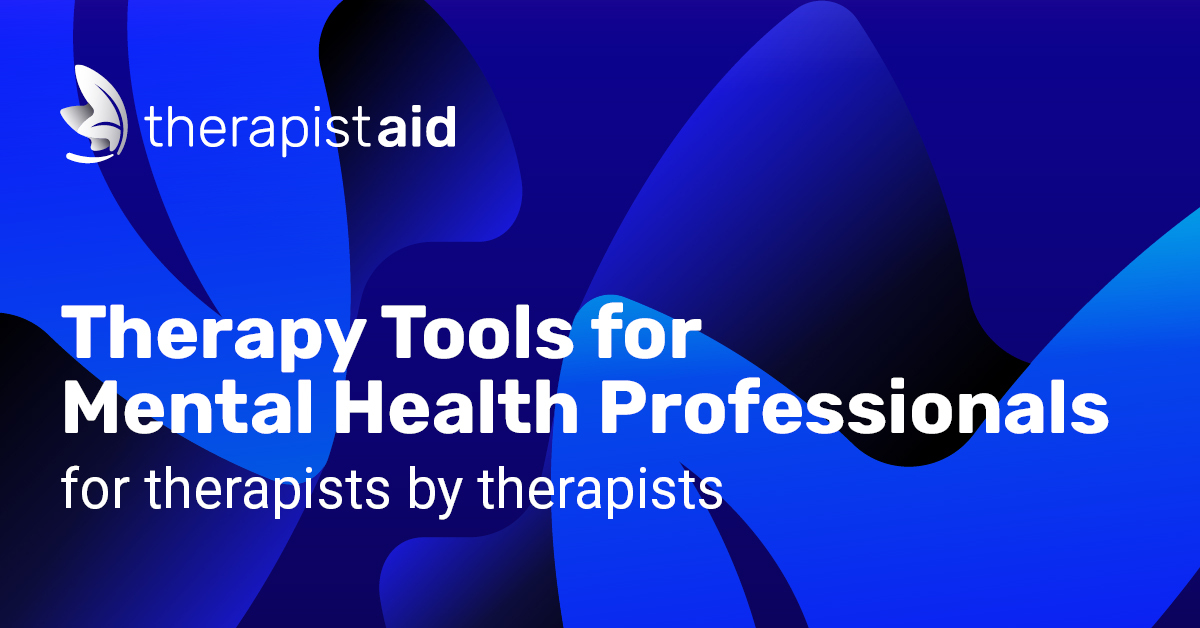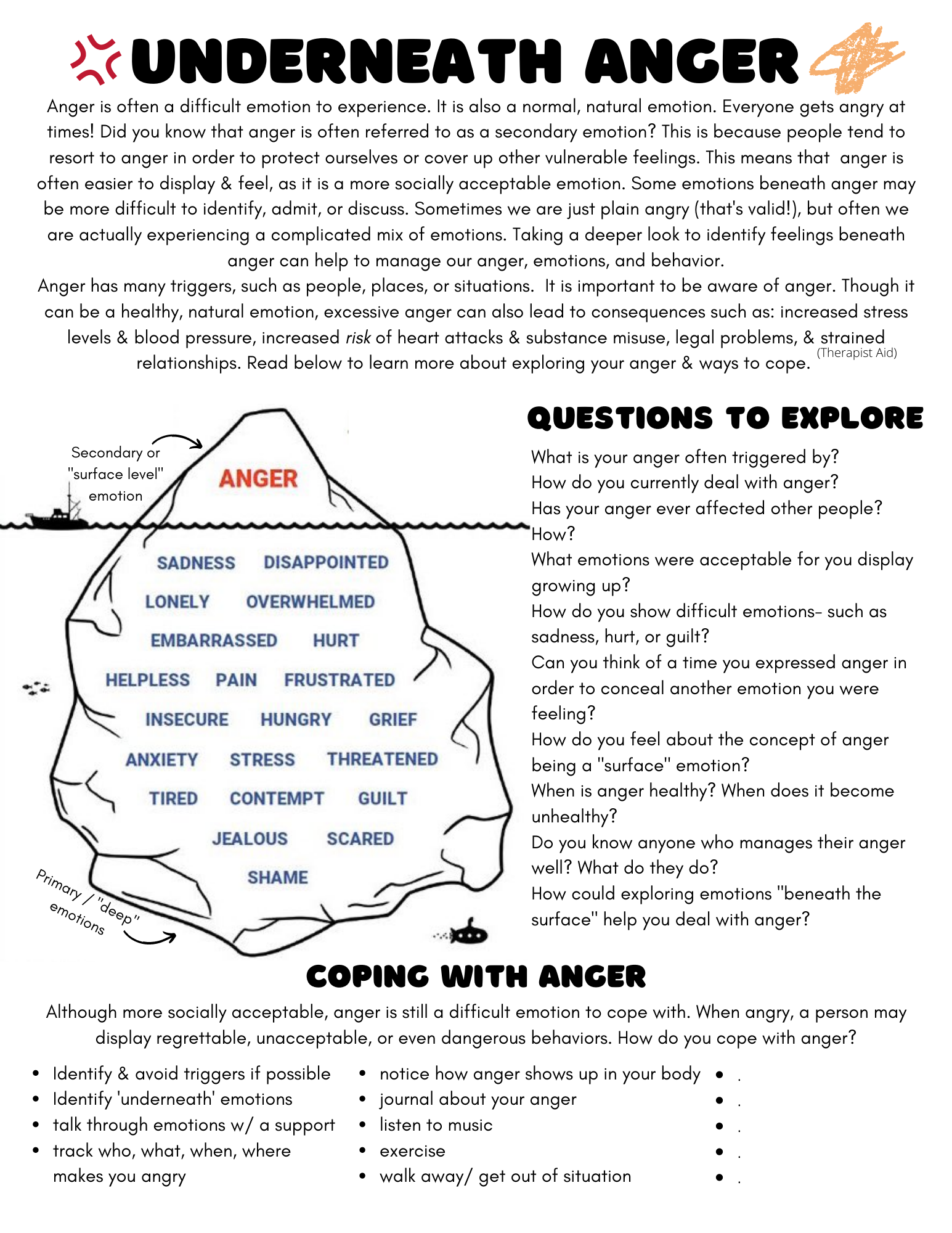Finding your way through life's many twists and turns can sometimes feel like a very big challenge, especially when difficult feelings or situations come up. That is why understanding the various kinds of support available, often called "therapist aid," becomes so important. These are the thoughtful methods and helpful tools that trained professionals use to guide people toward better emotional health and stronger ways of living. It is about creating a space where growth feels possible, where you can, in a way, start to see things differently and build new strengths.
Therapy, you know, is not just one simple thing; it is a whole collection of helpful approaches. It can involve talking, yes, but it also includes specific strategies that help you work through tough spots. These aids, as we call them, are designed to give you practical ways to handle your feelings, change old habits, or even see your thoughts in a new light. It is a bit like having a map and some good gear for a journey you are taking.
So, what does this idea of therapist aid really mean for someone like you, or for anyone looking for support? It means there are deliberate steps and thoughtful ways a therapist can help you, whether you are dealing with a long-standing problem, like Shirley’s experience with domestic violence, or a sudden crisis, such as a family facing the aftermath of a wild fire. We will explore how these aids come into play, offering real help for real life.
Table of Contents
- What is Therapist Aid, Really?
- Tools for Thought: Helping Clients See Clearly
- Building Better Habits: Aid in Behavioral Management
- The Power of Connection: Mutual Aid and Group Support
- Engaging the Heart: Therapist Responses That Connect
- When Crisis Hits: Specific Aids for Tough Times
- Why Therapist Aid Matters for You
- Frequently Asked Questions About Therapist Aid
What is Therapist Aid, Really?
When we talk about therapist aid, we are pointing to the various methods and supports a mental health professional uses to help someone. It is not a single thing, but a collection of ways to assist clients in reaching their goals for better well-being. Think of it as a toolkit, you know, filled with different instruments for different tasks. These aids help therapists guide conversations, offer new perspectives, and teach practical skills.
Beyond the Couch: Understanding the Scope
The idea of therapist aid goes well beyond just sitting and talking. It includes structured exercises, specific ways of asking questions, and even suggestions for things to try outside of sessions. For example, a primary goal in some types of therapy, like psychoanalysis, is to have clients project their feelings for a deeper look. This projection, in a way, becomes an aid itself, giving the therapist clues about inner workings. It is a way of bringing what is inside out into the open, so it can be seen and understood.
These aids can also involve teaching clients how to develop systems of rewards and punishments to aid in behavioral management. This is something often seen in operant conditioning, where specific actions are encouraged or discouraged. It is a very practical way to help someone build new habits or stop old ones. So, it is about giving people the means to make real changes in their daily lives, which is pretty amazing.
Tools for Thought: Helping Clients See Clearly
One of the most powerful kinds of therapist aid helps people look at their thinking. Sometimes, our minds get stuck in certain ways of seeing things that are not very helpful. These are often called faulty patterns of thinking. A therapist uses specific aids to help clients recognize these patterns, which is a big step toward changing them.
Shining a Light on Thinking Styles
For instance, a therapist might use questioning techniques to gently challenge a client’s assumptions. They might ask, “What makes you think that?” or “What is another way to look at this situation?” These questions are aids that encourage a client to step back and examine their thoughts rather than just accepting them as fact. It is about helping someone gain a bit of distance from their own thoughts, which can be very freeing.
They might also suggest exercises where clients track their thoughts in a journal. This helps them spot repeated negative ideas. This tracking becomes an aid, a tangible record that shows how often certain unhelpful thoughts appear. It is, in a way, like drawing a map of your mind’s usual paths, so you can choose a different route if you want to.
Building Better Habits: Aid in Behavioral Management
Changing behavior can be one of the toughest things to do, especially when habits have been around for a long time. This is where therapist aid focused on behavioral management comes into play. It provides structured ways to help people make lasting changes in how they act.
Crafting Positive Changes
As mentioned, therapists can help clients develop systems of rewards and punishments. This is a very direct aid. For example, if someone wants to start exercising more, they might set up a small reward for themselves after each workout. Or, if they want to stop a less helpful behavior, they might have a small, immediate consequence for it. It is about making the desired behavior more appealing and the undesired one less so, which is pretty clever.
This approach is rooted in operant conditioning, a way of learning where behaviors are shaped by what happens after them. The therapist acts as a guide, helping the client design a system that truly works for their specific situation and goals. This kind of aid is especially helpful for things like managing daily routines, dealing with procrastination, or even addressing more complex issues like the challenges Shirley faced in her situation, where developing new coping actions could be a part of her path forward.
The Power of Connection: Mutual Aid and Group Support
Therapy does not always happen one-on-one. Group settings offer a unique kind of therapist aid, where the shared experience itself becomes a powerful tool for healing and growth. Mutual aid groups are a really good example of this, where people facing similar challenges support each other.
Finding Strength Together
A treatment program, for instance, might require all of their clients to attend a mutual aid group. This kind of group, like one centered around Christianity, provides a community where individuals can share their struggles and triumphs. The group experience, you know, makes clients more willing to share their feelings because they see others doing it too. This shared vulnerability is a significant aid in itself, helping people feel less alone.
The benefits of group therapy are quite clear. It allows clients to learn from others, practice new social skills, and receive support from people who truly understand what they are going through. It is a bit like having a whole team cheering you on, which can make a big difference when you are trying to make changes. This collective strength is a powerful form of therapist aid, showing that sometimes, the best help comes from those walking a similar path.
Engaging the Heart: Therapist Responses That Connect
Beyond specific techniques or group settings, a therapist's way of speaking and responding is a very important aid. The right words, spoken at the right time, can make a client feel truly heard and understood. This is about the human connection that underpins all good therapy.
Speaking to the Soul
Consider the question, "Which of the following therapist responses best engages the client?" An engaging response is one that shows empathy, asks open-ended questions, and invites the client to explore their feelings more deeply. It is not just about giving advice; it is about creating a dialogue where the client feels safe to open up. For example, if a client is hesitant about a group requirement, a therapist might say, "It is a program requirement to attend a group, and I wonder what thoughts or feelings come up for you about that?" This kind of response is an aid because it acknowledges the client's perspective while still gently guiding them.
A therapist's ability to truly listen and then reflect back what they hear, perhaps with a touch of warmth, is a very subtle yet powerful aid. It helps clients feel seen, which can build trust and encourage deeper sharing. This kind of interaction is what makes therapy feel like a truly supportive place, and it is something therapists work very hard to perfect.
When Crisis Hits: Specific Aids for Tough Times
Life can throw unexpected challenges our way, like a natural disaster or a sudden, overwhelming event. In these moments of crisis, specific therapist aids are needed to help individuals and families cope with immediate distress and begin the process of healing.
Offering a Hand in Hardship
Imagine a family they have seen in crisis after a wild fire. What can a therapist say to them? In such a situation, a therapist’s aid would focus on immediate emotional support, validating their experiences, and helping them process the shock and loss. They might say something like, “This is an incredibly difficult time, and it is okay to feel everything you are feeling. We are here to help you through this, step by step.” This kind of response is an aid because it provides comfort and a sense of safety when everything else feels out of control.
Crisis intervention often involves practical aids too, like helping connect families to resources for basic needs or teaching immediate calming techniques. It is about stabilizing the situation emotionally and practically, so people can begin to rebuild. This specialized form of therapist aid is vital when life delivers its hardest blows, offering a lifeline when it is needed most. It shows that support is available even in the most challenging moments.
Why Therapist Aid Matters for You
Understanding therapist aid means knowing that there are many ways to get help and grow. Whether it is learning to manage difficult behaviors, recognizing unhelpful thought patterns, finding strength in a group, or receiving compassionate guidance during a crisis, these aids are designed to support your journey. They provide the structure, the tools, and the human connection needed to move forward. So, if you are considering seeking support, know that a therapist has a wide array of helpful approaches ready for you. You can learn more about mental health support on our site, and find resources on coping strategies right here.
Frequently Asked Questions About Therapist Aid
What kinds of problems can therapist aid help with?
Therapist aid can help with a very wide range of life's challenges. This includes managing daily stress, dealing with feelings of sadness or worry, overcoming long-standing habits, and even coping with very difficult experiences like trauma or family crises. It is about giving you ways to handle what comes up.
Is "therapist aid" just another name for therapy?
Not quite. "Therapist aid" refers more to the specific methods, tools, and approaches a therapist uses within the overall process of therapy. Therapy is the whole experience, and therapist aids are the particular techniques or supports that make that experience helpful for you. It is like therapy is the meal, and the aids are the ingredients and cooking methods.
Can I use therapist aid techniques on my own?
While many of the concepts, like recognizing thought patterns or setting up reward systems, can be practiced on your own, a therapist provides personalized guidance and support. They help you choose the right aids for your situation and teach you how to use them safely and effectively. It is always best to work with a professional, especially when starting out.



